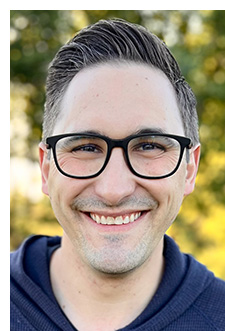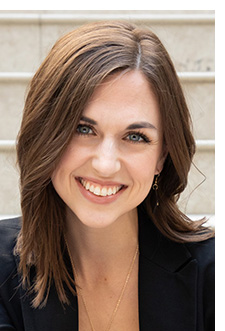By Chris Moon
People can sometimes get stuck in their spiritual growth.
They start out well. They attend church, read their Bibles, and join a small group. And then? They stall out.
Something causes the good work they were doing to grind to a halt. They stop the practices that were moving them forward. And, so, they don’t move forward.
They’re stuck.

“It’s not a race, but if it was, we all would lose,” said Tommy Carreras, the founder and owner of Done With Stuck—a new company that aims to give people tools to deal with the deep-seated issues that block their growth.
Carreras said he saw these “blocks”—things like negativity or anger—over and over again as a pastor.
He spent eight years on staff at Mission Church in Ventura, Calif., where he served in adult ministries and pastoral care. The church had a large recovery culture, and Carreras got involved.
Something was different about that community. They got unstuck.
Carreras said he watched people in that community grow—becoming stronger Christians, better spouses, more stable friends—in a very short time.
“They grew at a rate that was 10 times the average person,” Carreras said.
As he studied the recovery community, Carreras began to find helpful tools that could be brought into the larger church—for people who may not be struggling with tough addictions but who have trouble moving forward in their spiritual and emotional lives, nonetheless.
“There was something about those communities,” he said. “Everything was practice-based. . . . Practices moved them forward.”
He noticed people in the recovery community being intent on changing their behaviors. And to change those behaviors, they were willing to accept the harsh reality of their lives and to take responsibility for the brokenness.
“They learned to hide nothing,” he said.
And everything was being done in community.
“Why can’t we recreate that?” Carreras asked.
GETTING TO THE BOTTOM OF IT
And, so, the concept for Done With Stuck was born.
“I wanted to figure out helping people in a way that felt different than what was available,” said Carreras, who now resides in Franklin, Tenn.

He and his wife, Lauren, have close ties with the Restoration Movement. Lauren is a partner in Done With Stuck and is the daughter of Tim Harlow, the recently retired pastor of Parkview Christian Church, a Chicago-area megachurch.
What Carreras has created is not necessarily a counseling program. And it’s not therapy, he said.
Carreras calls it a “self-guided journey inward with God.” It’s a tool.
The base cost for the content is $87.
It is built around a series of questions participants must ask themselves to get down to some of the hard areas that cause them repeated trouble in their spiritual growth.
He calls the content a “reusable roadmap.”
A person can purchase the Done With Stuck content directly and go through it with a conversation partner. Carreras also is forming pastor cohorts that meet every two weeks to work through the content.
The content also could be installed as a system within a church, and people could interact with it as needed, directed by a pastor.
The content includes six sessions of material spread across seven meetings. Each week, participants are given practices to live out.
Carreras said one week includes a “dopamine fast” to test how participants are coping with life. A person might abstain from social media during that time and record every moment they were tempted to indulge.
The idea is to see what pushes a person to seek out those behaviors.
Carreras said another week of the content has participants track key emotions throughout their days to see how their emotions are related to behavior.
This personal introspection can help people identify the “blocks” to spiritual and emotional growth—“all the way at the bottom”—that they need to explore and resolve, Carreras said.
It might be a past trauma or some other experience or belief that causes them repeatedly to stumble.
“They have to find it for themselves,” he said.
CAREFUL LANGUAGE
Carreras said Done With Stuck’s content steers clear of many common Christian terms, including “sin.” He said the concept of sin factors into people getting stuck, but many people connect it with God’s judgment.
Carreras said he wants his clients instead to focus on what is beneath the sin—the heart desires or corrupted beliefs that bring sinful behaviors to the surface.
It calls for curiosity about one’s own sinful behaviors.
“The judgment piece doesn’t work. Curiosity does,” Carreras said.
He said many people have all sorts of corrupted beliefs that sabotage their walk with God.
“What they believe about themselves always will sabotage what they believe about God,” Carreras said. “That’s what we’re trying to get to.”
Carreras said people in the recovery community relatively easily dig beneath the surface of their behaviors and explore what is causing them. Many other people, with less drastic types of behavior problems, often don’t.
“At some point, we’ve got to get down to that level,” Carreras said.
Chris Moon is a pastor and writer living in Redstone, Colorado.
Find helpful articles about improving mental health in Christian Standard’s January/February 2024 issue, available here.

Curiosity to explore behaviors? Very New Age. (your psyche is out of synch) “sin” is judgmental. God is judgmental. If there is no “sin: there is no repentance, nor confession. Mission Church makes no mention of repentance, nor baptism in their statement of ‘salvation’….